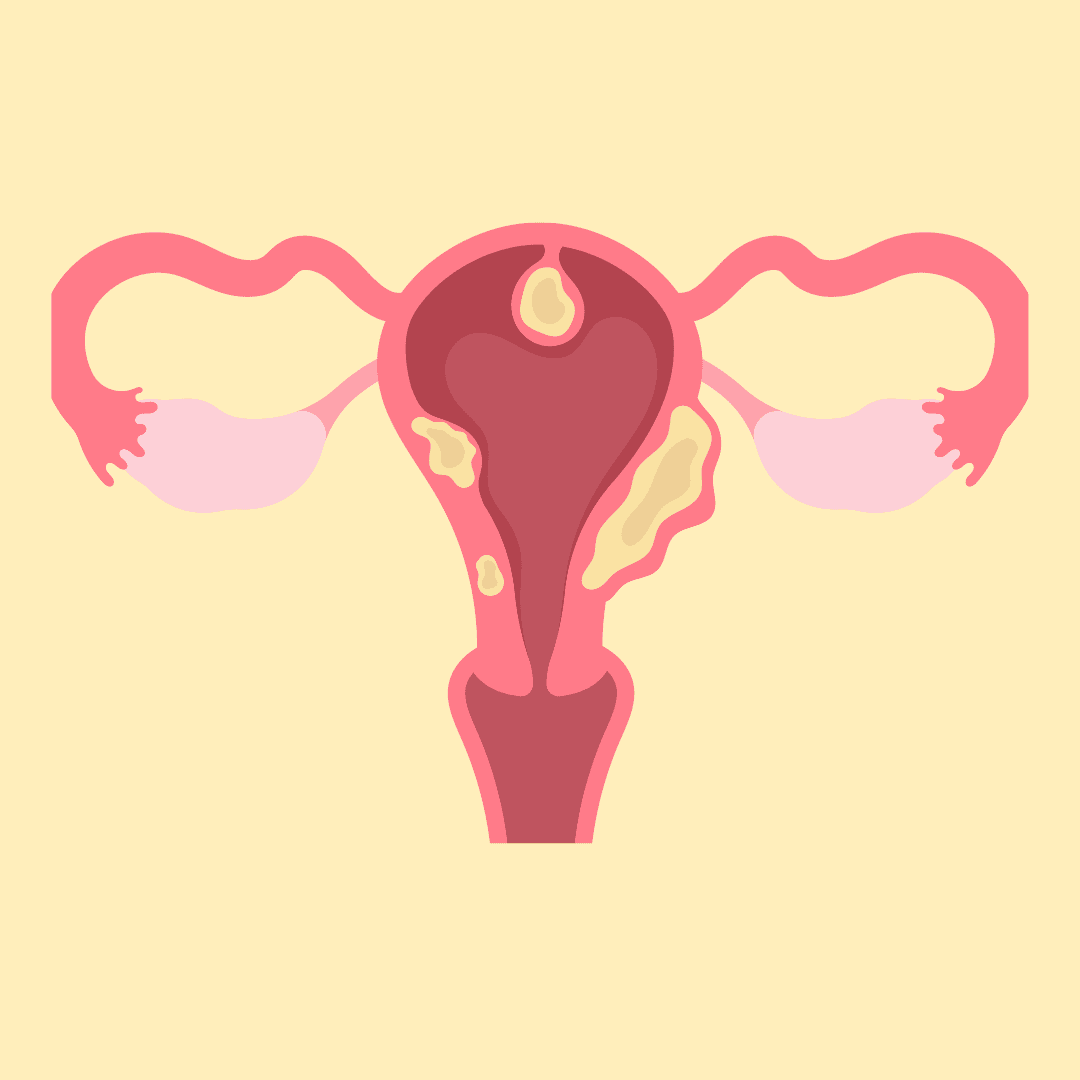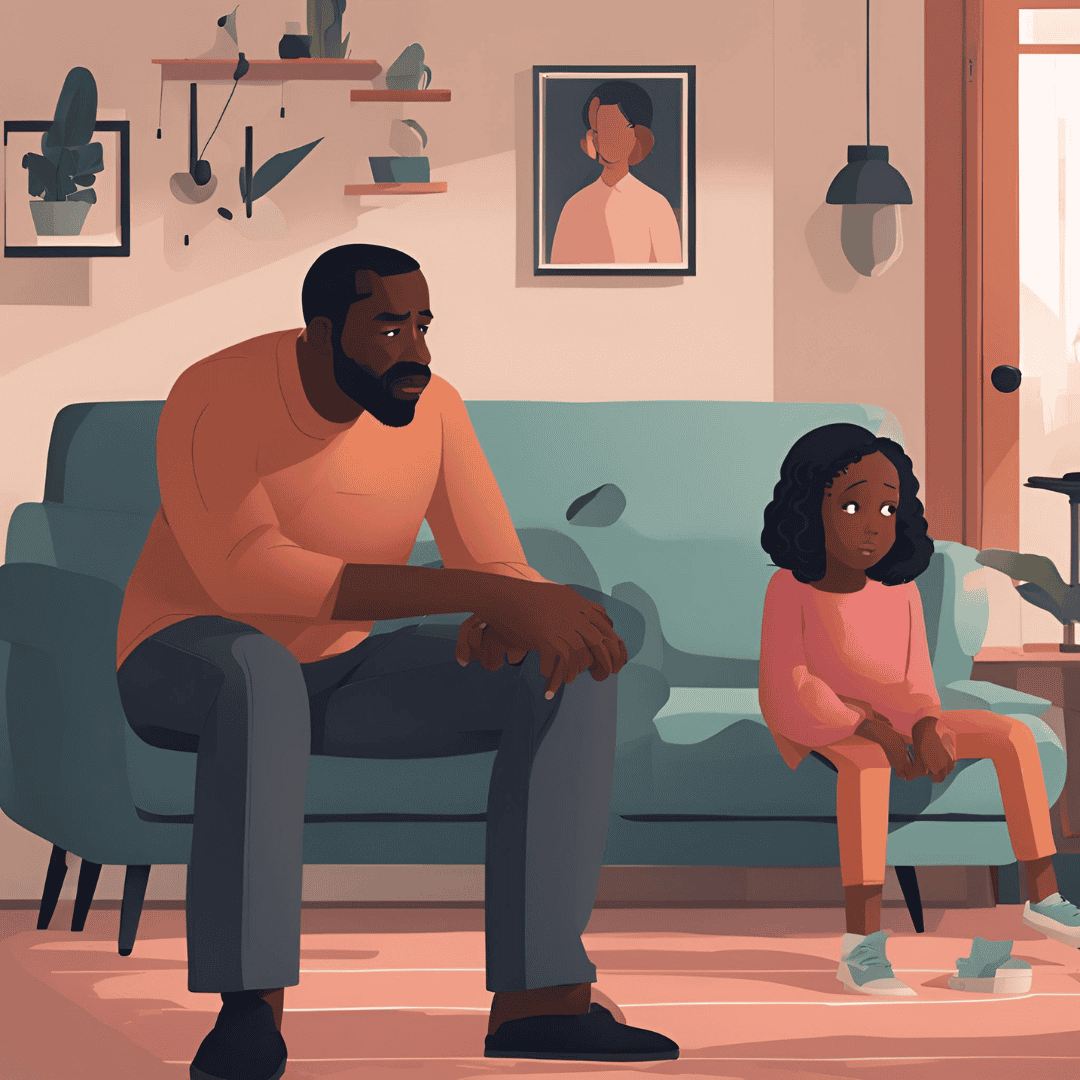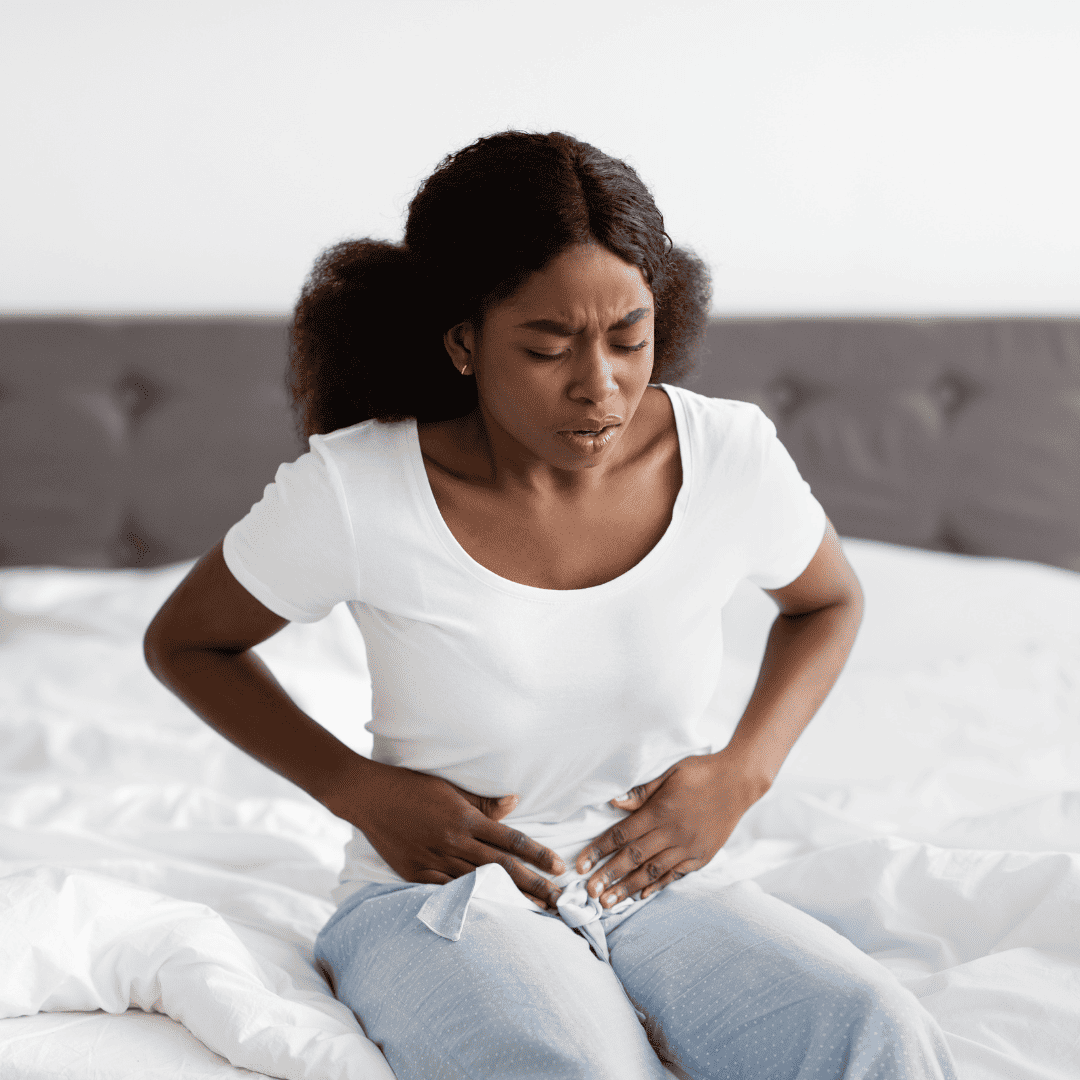-
How Anaemia Affects Fibroids: The Hidden Connection
Disclaimer: This article regarding anaemia is for educational purposes in this lifestyle blog and may include the blogger’s opinions. The information written is accurate and to the best of my knowledge, however, some information may be omitted. I am not a qualified medical professional so this should not be seen as advice. I reserve the right to change how I run and manage this blog and may change focus at any time.

Photo of iron-deficiency anaemia from Hailshadow from Getty Images Signature on Canva. Isn’t anaemia annoying? Imagine feeling sleepy at different times of the day and it keeps happening. The one thing that shocked me was that fibroids can develop as a result of being diagnosed with anaemia.

A tired black woman in a blazer is sitting in front of her laptop with headphones. Photo from dimaberlinphotos from Canva. What is anaemia?
Anaemia is a medical condition that affects your health and ultimately your energy. According to the NHS, “anaemia is when your body doesn’t have enough red blood cells to carry oxygen around your body.”
What are the symptoms of anaemia?
According to BUPA, they outlined several symptoms such as “feeling tired, weak, faint and dizzy.”Living with anaemia meant that I would feel tired a lot and I cannot stress how not having enough iron can affect your mood and overall wellness.
What causes anaemia?
As mentioned by Flo, the period tracker app, there are a few causes that can lead to anaemia such as:
- Blood loss through period- if a woman has heavy periods then a lot of the blood would be lost during menstruation which could affect the iron in the body leading to low energy.
- Not eating enough foods high in iron- another cause can be if someone isn’t eating enough iron this could pro into anaemia since the red blood cells are not getting iron.

Hungry black lady holding an empty plate and yawning from Nwezi Confidence’s Images from Canva. When was the first time I had anaemia?
My first experience with the condition happened when I was in college. I started my A-Levels in 2011 and I remember sitting on the bus feeling tired. And I started taking iron tablets hoping that it would never return.
So, what happened during lockdown?
Fast forward to 2020, COVID-19 happened and in March 2020, we went into lockdown I started to feel fatigued again. Several months later, I studied for a postgraduate degree and I went to the GP, took blood tests and discovered that I was anaemic.
Several months later, I started a postgraduate degree in 2020 and I went to the GP, took the blood tests and discovered that I had anaemia.
In April 2021, I notified the tutor in my course that I had an appointment and wouldn’t be able to attend the virtual seminar. I went to the hospital and went for an uncomfortable scan. Then, I got dressed and I went back to the waiting room.
The doctor entered the room and explained the results and she revealed that I have fibroids, I felt shocked and disappointed to hear the news and I wasn’t expecting it to lead to a shocking diagnosis.
I left the hospital feeling disheartened and decided to research fibroids when I got back to the student accommodation, only to find out that the causes may have contributed to developing fibroids.
Tips on managing your diet with anaemia and fibroids?
1. The first tip is to eat more green vegetables started to eat more green vegetables such as green beans, Broccoli and Kale. Growing up in a Congolese household my diet was meat, fish and plant-based foods. When I started university, I started to eat more plant-based foods and started to reduce dairy foods and meat intake.
2. The second tip is switching from dairy milk to plant-based milk. At university, I started to drink more plant-based milk such as Oat and Soya milk. I like soya and oat milk because they are delicious and it has been a good investment in reducing dairy.
3. The third tip is eating more potassium, I have been eating more potassium in my 20s. An article by Livestrong highlighted some of the foods that I enjoy eating that are high in potassium and good for your health. These are:
- Bananas
- Lentils
- Yoghurt
- Avocado
- Yoghurt
4. My fourth tip is taking vitamin D supplements, I have been taking vitamin D supplements as part of my medication. According to the British Heart Foundation,
“one in six adults have low levels of vitamin D.”
– british heart foundationTaking vitamin D has been a major part of my life since vitamin D manages my energy levels and eating foods that are rich in vitamin D is good for your bones and teeth.
5. The 5th tip that I want to add is eating more iron and looking for foods that are in fibre such as meat and pulses.
6. My final tip is exercise, we know that doing workouts that suit your needs and make you feel confident in yourself.
Final Thoughts
I hope you enjoyed reading this short blog post based on my experiences and how I deal with anaemia. I hope the tips that I offered were helpful and that they gave you some ideas on what you could do to manage your anaemia. The important thing is to do what works best for you and focus on your health.
Don’t forget to comment below and let me hear your thoughts about managing anaemia and fibroids. Share this article with other black women who would like to know more tips about managing anaemia. As always, I appreciate feedback on my writing.
-
Understanding Fibroids: What Black Women Need to Know
Disclaimer: I am not a qualified health professional and this is strictly based on experience and this will be used to educate readers. Read with caution.
This is a silent condition because I have noticed that we don’t talk about fibroids in the black community, it is not something that is spoken widely like many things such as mental health.
It is something that needs more attention, particularly for black women. I’m hoping this topic can spark a conversation amongst black women who have this condition.
Also, I was diagnosed with fibroids 2 years ago and it is fairly small (I hope it stays that way until I get rid of them because they shouldn’t be living on my uterus, it’s disrespectful).
What are Fibroids?
According to the NHS, “fibroids are non-cancerous lumps which can grow in various sizes on or around the uterus and it varies from woman to woman.” Some women may experience stronger symptoms of the condition compared to women who may have fibroids but they don’t have any symptoms.
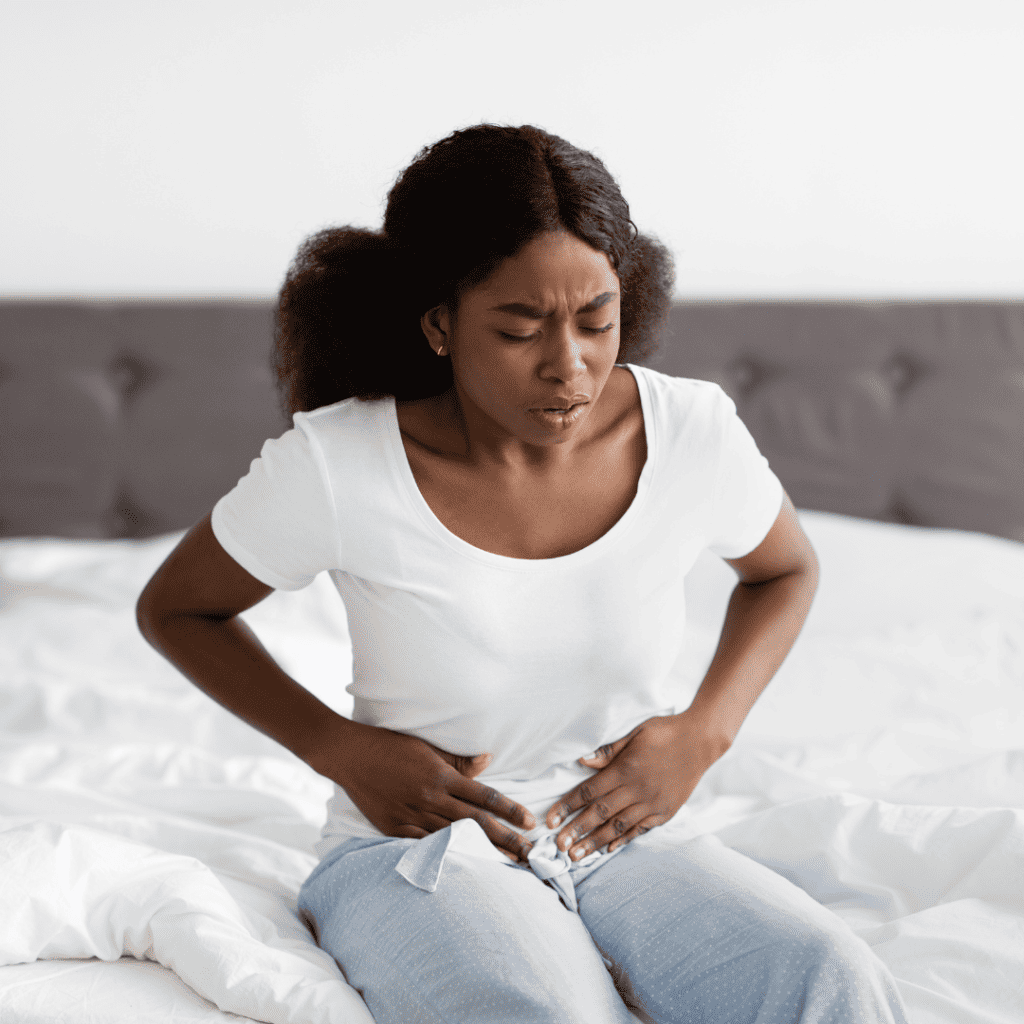
A black woman sitting on the bed with her hands on her stomach feeling stomach cramps. Photo by Prostock studio. Racial Disparities in Health
As mentioned by the Huffington Post, it has been estimated that “25% of black women are more likely to be diagnosed with the condition than 6% of white women. “
Fortunately, this condition is not cancerous, however, black women are more prone to developing fibroids than other races of women.
A study by the University College of London argued that “racism and discrimination contributed the most to the health disparities of melanated people.”
Furthermore, there has been plenty of evidence that has been documented when it comes to the lack of belief that black women require attention.
Similarly, a recent study by the Black Women’s Health Imperative has shown that “80% of black women and 70% of white women could develop fibroids by the time they are 50.” These numbers are of great significance because they indicate the seriousness of fibroids and their need for greater attention.
An example would be the case of gynaecologist Dr Sims who experimented on enslaved black women without anaesthesia during slavery in the USA. This affects the way black women are perceived in the healthcare industry.
What causes Fibroids?
The causes of fibroids remain a mystery, however, there have been various studies that have mentioned different possible causes that may explain why the condition affects black women at a higher rate.
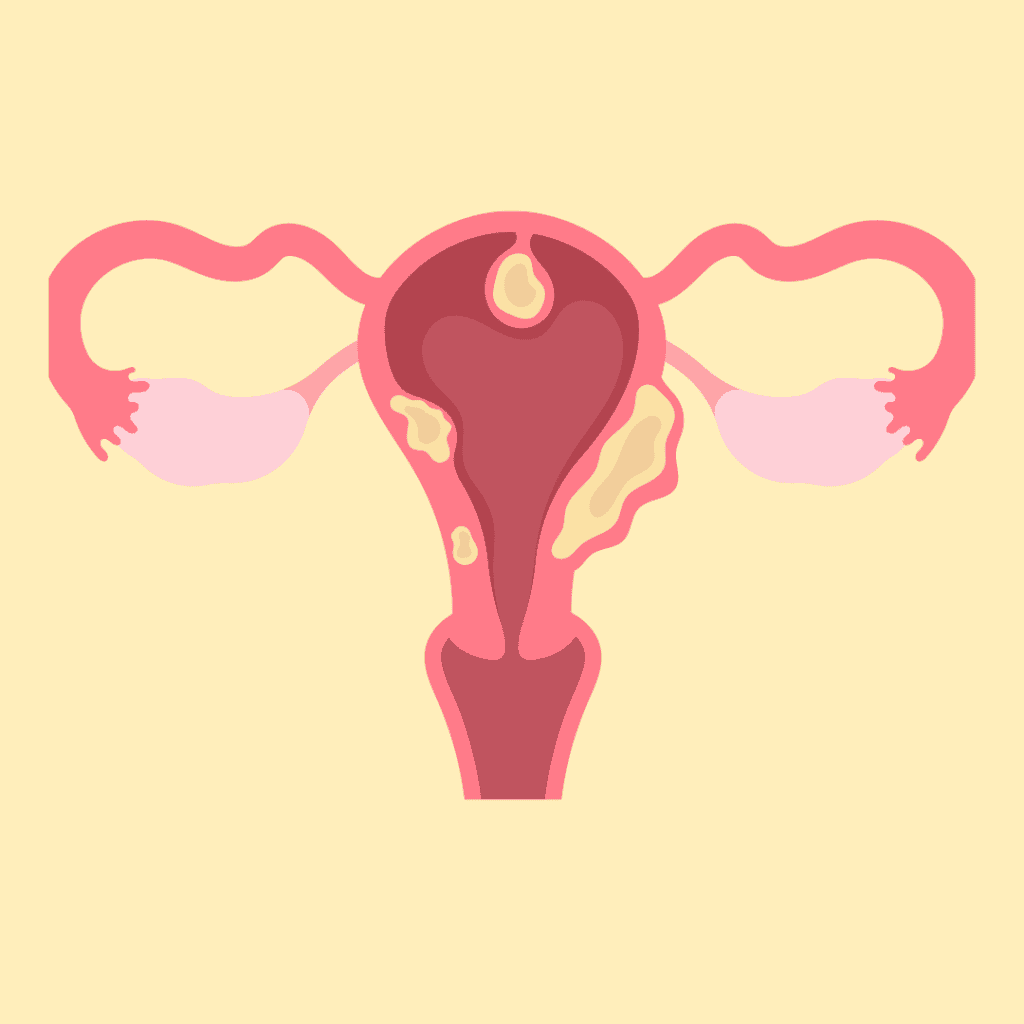
A graphic by Pepermpron of the female anatomy showing the uterus with uterine fibroids. Early Menstruation
According to a study by the National Library of Medicine, if a woman experiences her period early, it may increase the likelihood of developing fibroids. This is interesting because if a woman received her periods early and ended up getting diagnosed with fibroids as an adult.
Race
Similarly, the British Journal of Obstetrics and Gynaecology stated that the likelihood of black women “being diagnosed is 2 to 3 times higher” and this is a tremendous figure which shows that race plays a significant role and that black women need to focus more on our reproductive health.
Demographic of fibroids
Another study mentioned family history and how this may have a bigger impact since it affects our reproductive system and our overall health. Family history implies that fibroids may be genetic- if someone in your family has fibroids then this may mean it could be inherited.
Furthermore, this is significant because this factor focuses on genetics and this may make us question whether or not developing fibroids is inherited.
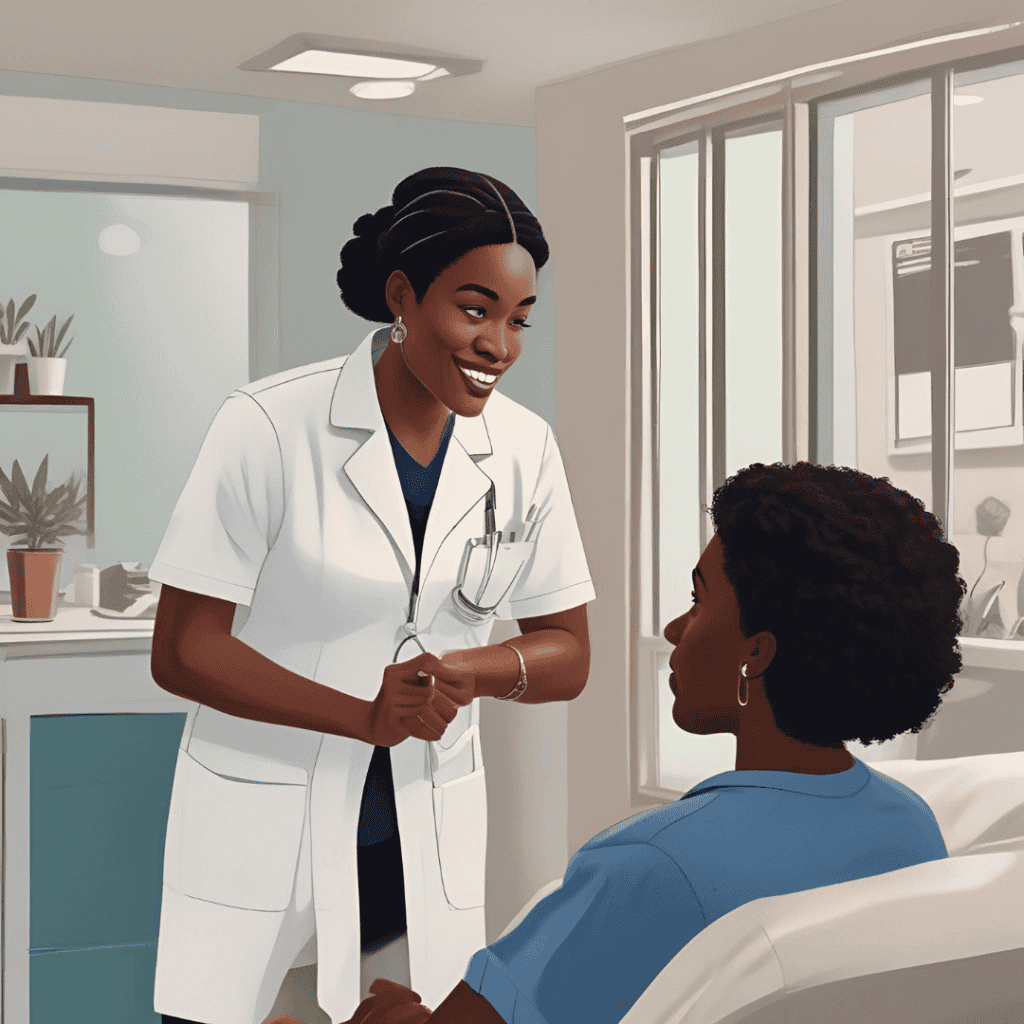
An illustration made by AI on Canva of a black doctor talking to a black patient in a hospital. What are the signs of the condition?
- Heavy periods
- Lower back pain
- Fatigue
- A frequent need to pee
Summary
I hope that this issue will be discussed more widely because this isn’t normal. It is one of the things that is going to make you wonder why some of us have non-cancerous tumours, because as black women we deal with enough things.
I hope you enjoyed reading this article and hopefully, this article helped you have a better understanding of the condition. Share this post with other black women, comment below, and let me know your thoughts and experiences about fibroids.
Afro Lit Stories


Healing through storytelling, elevating black millenial women, one mindset shift at a time
